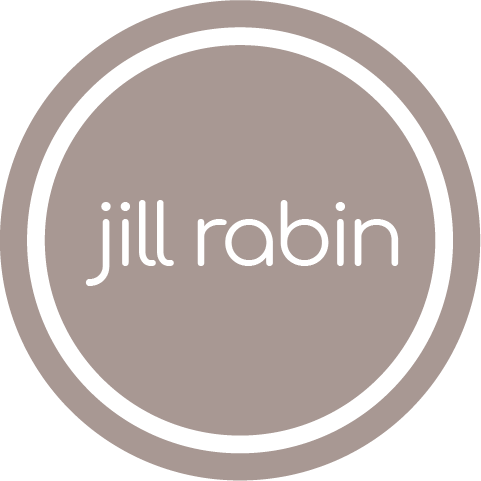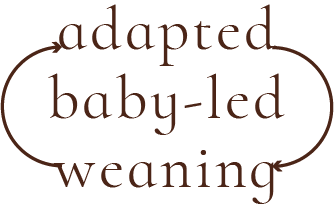
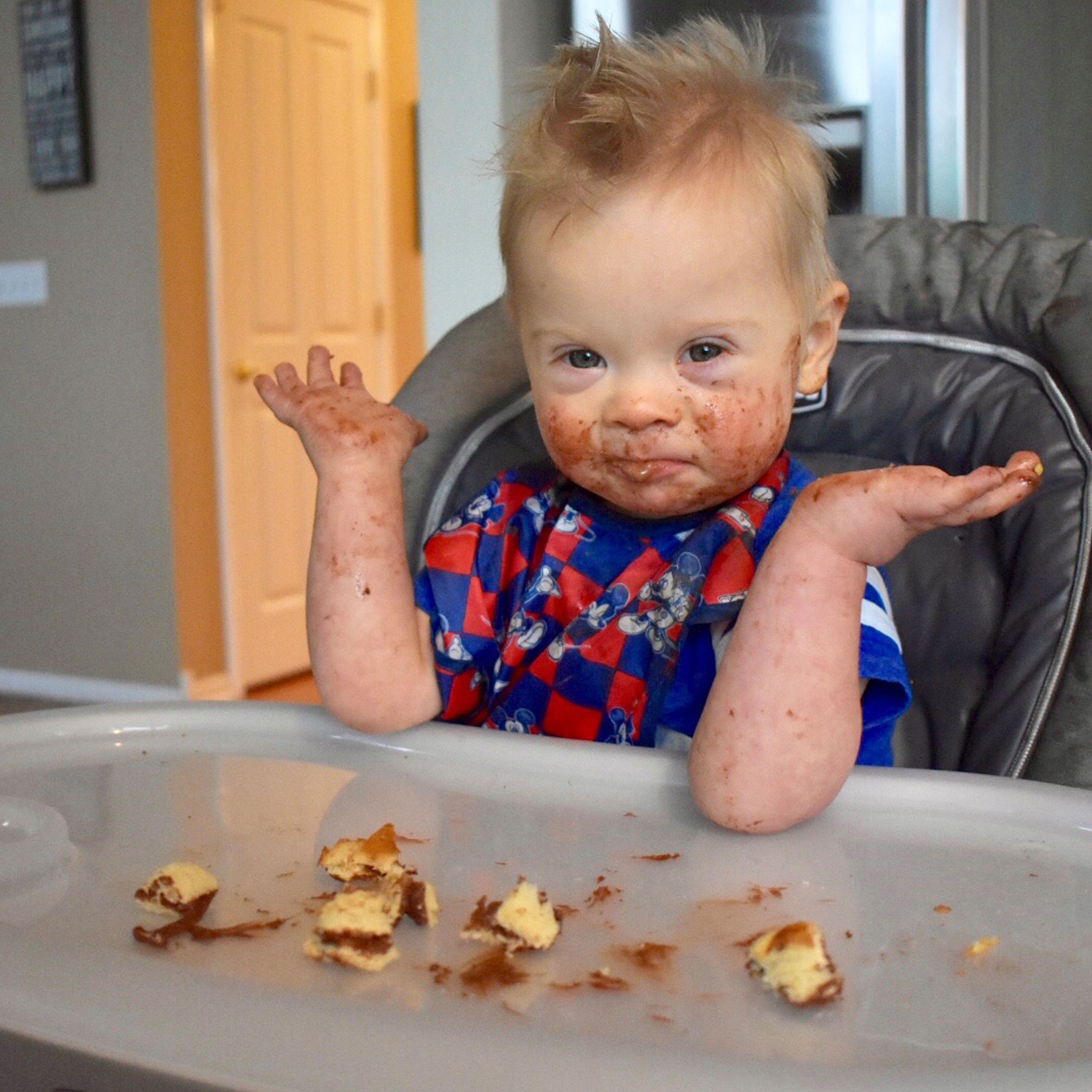
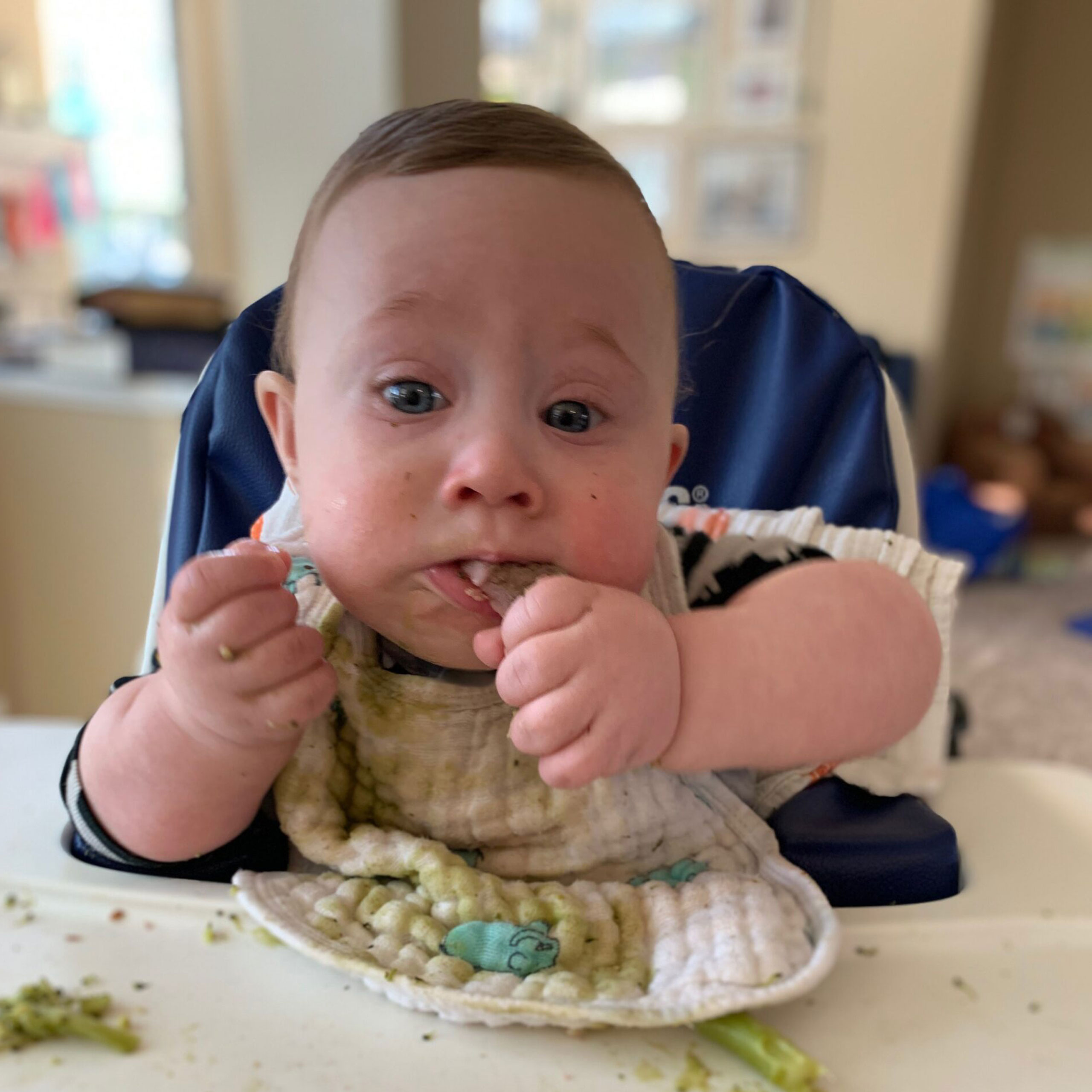
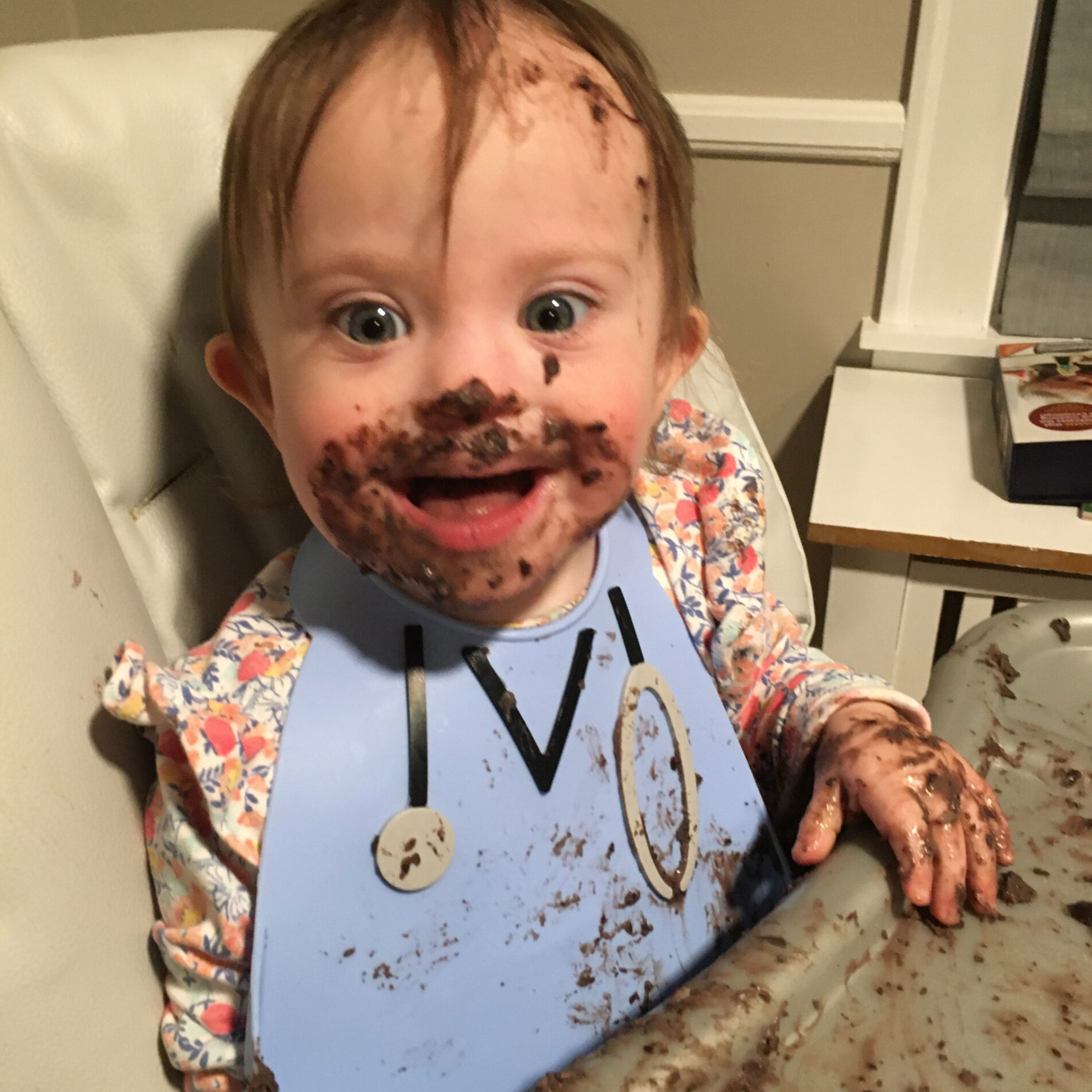
Adapted Baby-Led Weaning (ABLW) is an adaptation of traditional baby-led weaning for babies with motoric or feeding challenges that impact their ability to self-feed. It follows this principles of traditional BLW and has a transitional phase which may require use of bridge devices such as preloaded spoons and silicone feeders to assist the baby with feeding challenges in bringing food to their mouth. The baby may require an initial phase of facilitation by a caregiver to bring feeding items and foods to his/her mouth. This is done responsively following the baby’s cues only bringing food to their mouth if they baby leans forward or opens their mouth to indicate acceptance.
The ABLW method may need to be used in conjunction with a prefeeding and therapeutic feeding program to work on foundational feeding skills depending on the baby’s individual feeding needs. ABLW was developed by Jill Rabin in 2010 originally to assist babies with Down syndrome in self-feeding but has been found to be effective in other populations with motor challenges as well as babies with aversive feeding behaviors.
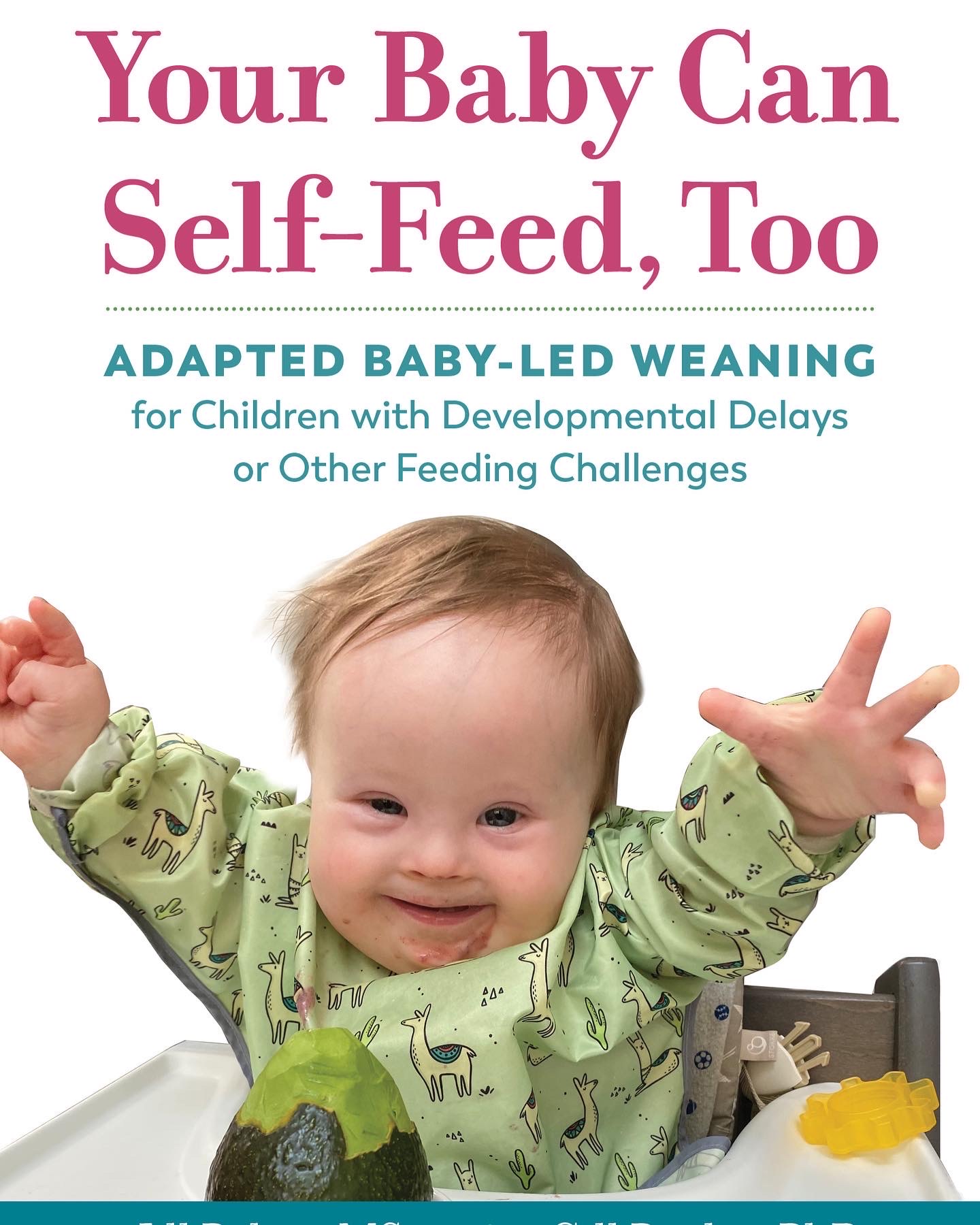
Your Baby Can Self-Feed, Too
Adapted Baby-Led Weaning for Chidren with Developmental Delays or Other Feeding Challenges
The book is intended primarily for parents who have a baby or young child with feeding challenges caused by, for example, developmental delay or a medical condition, but also for health care professionals who work with babies who present in this way. Other family members, friends and daycare staff will also find it useful. We expect it to be welcomed by parents who’ve been told that their baby can’t safely feed themselves or follow baby-led weaning (BLW) when in fact there is almost certainly a way that this can happen. In addition to babies with neurodiverse backgrounds, this book can be useful for parents with babies with neurotypical development who may struggle with issues such as struggling with the ability to chew or advance to more complex age-appropriate foods or feeding aversion.
The aim of the book is to empower parents to support their child to achieve maximum autonomy in eating, starting from when solid foods are first introduced in the second half of the first year. Ideally, it should be read at this stage, or earlier, and is best used in collaboration with the baby’s health care providers – especially speech-language pathologists, occupational and physical therapists.
Jill is an incredible person, lactation consultant, and feeding therapist. She is an expert in all things baby- led weaning and I am so thankful to have met her. I started working with Jill after my second BLW baby was having feeding issues. I wish we had met Jill with my first, but I am so thankful to have met her when we did. Our journey was successful due to her outstanding coaching, helpful tips, and her encouragement at every step. She gave me the tools I needed to be successful and the confidence to know I would be. My daughter is growing well and loves to eat and I don’t know where we would be without Jill. Every parent should take her masterful transition to solids class and anyone struggling in their feeding relationship should follow her method. Her tips and tricks are all rooted in necessary skills, but are so easy and manageable. I’ve learned so much on this journey with Jill and have become a better parent to both of my children in the process. Go Jill!
